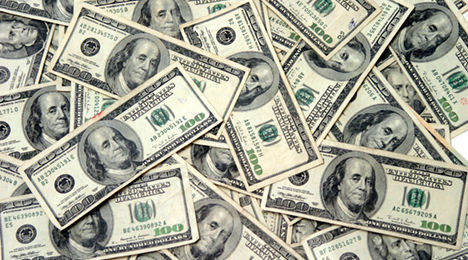Current Auto Loan Balances Reach New High at $884B

By subscribing, you agree to receive communications from Auto Remarketing and our partners in accordance with our Privacy Policy. We may share your information with select partners and sponsors who may contact you about their products and services. You may unsubscribe at any time.
ATLANTA –
Driven in part by the increasing retail price for vehicles, the latest Equifax National Consumer Credit Trends Report showed the total outstanding balance of current auto loans reached a new record high in April.
Equifax determined outstanding balances closed April by rising 10.8 percent from the same time a year earlier to come in at $884 billion.
Through February, analysts indicated that new credit given by finance companies for vehicles totaled $69.6 billion, marking an eight-year high and an increase of more than 13 percent year-over-year.
Furthermore, Equifax said that serious delinquencies represent less than 1 percent of total outstanding balances, the lowest level in more than five years.
“Auto lending continues to lead the recovery,” Equifax chief economist Amy Crews Cutts said. “By any metric you consider, whether new originations, total balances or low delinquency levels, the auto sector is running on all cylinders.
“The boom in auto purchases ended in 2004, and people are now thinking about replacing their jalopies, as the average age of a car on the road today is over 11.4 years old and the financing terms are favorable for those with decent credit histories,” Crews Cutts said.
Subscribe to Auto Remarketing to stay informed and stay ahead.
By subscribing, you agree to receive communications from Auto Remarketing and our partners in accordance with our Privacy Policy. We may share your information with select partners and sponsors who may contact you about their products and services. You may unsubscribe at any time.
And part of that fuel for pushing those outstanding balances higher is the retail prices consumers are paying — even though incentives were on the way up last month, as average transaction prices were reported to have fallen slightly from April.
According to TrueCar.com data, the average incentive spending for light vehicles in May was $2,677, up $17 (0.7 percent) from May 2013 and up $91 (3.5 percent) from April.
TrueCar estimated the ratio of incentive to average transaction price for light vehicles was 8.7 percent in May 2014, up 1.1 percent from May 2013 and up 7.5 percent from April 2014.
Perhaps a result of ramped up incentives, both TrueCar and Kelley Blue Book reported a slight decline in transaction prices from April.
KBB reported the estimated average transaction price for light vehicles in the United States was $32,307 in May, which is up $635 from May 2013 and down $79 from April.
“Small and midsize car share has declined slightly, as car shoppers opt for small and midsize crossovers, helping boost this month’s average transaction price,” said Karl Brauer, senior analyst for Kelley Blue Book. “Benefitting from strength among the crossover segment, the Acura MDX now comprises more than a third of Acura’s sales, boosting the brand’s transaction prices 5.5 percent year-over-year and helping keep Honda’s overall ATP flat.”
According to TrueCar data, the average transaction price was $30,646 in May 2014, down $149 from May 2013 and down $1,174 from April.
“Industry-wide, we saw average transaction prices contract slightly in May,” said Larry Dominique, president of ALG and executive vice president of TrueCar. “Conversely, Chrysler and GM were able to command higher prices, while shrinking their incentive spend-to-price ratio. This is a positive brand indicator for the two automakers.”
Highlighting transaction prices for individual brands, KBB analysts pointed out Volkswagen performed particularly well in May.
“Revealing a healthy average transaction price increase this month is Volkswagen Group, up 5.5 percent from last year,” said Alec Gutierrez, senior analyst for KBB. “However, this is due to a decrease in the share of Volkswagen brand sales and a corresponding increase in Audi share. Following the re-introduction of the entry-level A3 sedan, Audi’s average transaction price is down 2.5 percent year-over-year, while the Volkswagen brand is relatively flat.”
For domestic brands, Chrysler Group reported the biggest gain in average transaction price, reporting a 4.8 percent bump up from May 2013.
Staff writer Sarah Rubenoff contributed to this report.


